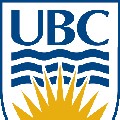September 16, 2004 At the Vancouver Board of Trade sponsored 'Distinguished Speaker Luncheon,' Dr. Martha Piper, president and vice-chancellor of the University of British Columbia, spoke about the role of universities in shaping global citizens. Piper said she wanted to go beyond making a predictable pitch for higher education and address a particular kind of education-one that defines excellence, one that that prepares students to be true Olympians, and one that creates outstanding citizens for "Canada's place in the world." The widespread acts of terrorism that have recently touched the globe have demonstrated that "we are not isolated from world events that occur in far-off regions. the inescapable truth is that we all feel vulnerable, wherever we reside, to the kind of fear that is reflected in the globalization of terror and the interconnectedness of our economies." According to Piper, if we are to live in one small, interconnected world, we must all assume and fulfill our responsibilities of that world. Our enemy is not another country-it is ignorance, intolerance, terror and revenge.
This is where universities come in, said Piper, because this is a fight universities must lead. Universities must assume their role of educating the citizens of the future, global citizens who understand the world in which we live and will ensure the survival of a civil society.
Piper defined global citizens as those who dwell in two communities: the community they are born in, and the community of "human argument and aspiration." She maintained that part of becoming a global citizen is to understand first what it is to be Canadian. To do this, we must look to our history and literature, film, theatre and music, sociology, geography and international studies, and then seek to understand the world beyond our own.
"To be globally literate, you have to learn how to synthesize information from disparate perspectives and then weave it all together to produce a picture of the world that you would never have if you looked at it from a singular point of view," said Piper. It appears that the day when university students could study one discipline is gone; today, graduates must be able to think laterally and creatively, which comes from the interconnections and overlap of different disciplines.
Piper addressed the issue of Canada as a peace-keeping nation, pointing out that peace is a much harder path to follow because it demands tolerance, understanding and forgiveness. We must also move beyond peace-keeping and lead in "peace preparation," a process beginning with education and universities. Piper suggests a two-pronged approach to support these critical educational efforts, the first step being that Canadian governments increase their support for research and scholarships that help inform public policy and develop social programs upon which a civil society is built. The second step is contemplating a significant role for the federal government in post-secondary education.
Last year, in a study conducted by the European Commission, UBC ranked 35th among the top 500 universities in the world. Said Piper, "It is obvious that we have the excellence, the scope, depth and diversity to take our place in the world. All we need now is the commitment of our nation, the determination to contribute and the strength and determination of Olympians." This content was provided courtesy of the Vancouver Board of Trade. To read more related articles, go to www.boardoftrade.com.

